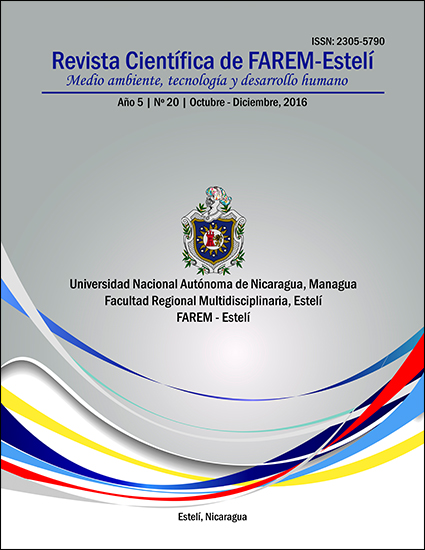Food safety in Kukra Hill, Autonomous Region, South Caribbean Coast, Nicaragua. 2016
Abstract
This study aims to determine the status of the Food Safety and Nutrition, families in Kukra Hill-Autonomous Region, South Caribbean Coast (RACCS). It is a part of my doctoral thesis which I have preliminary results, using the qualitative technique that is depth interviews. We interviewed house wives in semi-urban area and rural areas, producers of semi-urban area and rural areas were also interviewed. These 13 semi-structured questions of food safety applied. We interviewed some social actors in the municipality; these actors were asked five open questions. The main results are: The social partners of the municipality limits the concept of Food Security and Nutrition Safety, to food availability, and the proposed intervention to ensure it, goes in the same direction. Families are selling their land to settlers arriving, transnationals and people from the Pacific of Nicaragua, and those who do not sell their lands, are producing what the transnational define, and the product is commercialized with them. Many migrated after selling their lands and they move to other countries such as Costa Rica, Panama, United States. Internally they go to other municipalities in the RACCS. Food availability is affected by the type of products that are growing and does not contribute to feeding families, lack of land, climate change and the proliferation of pests. There is food insecurity at household and community level. There is support and solidarity among people in the community and government support for some families and some producers. Monocultures are dominating land use in the municipality, and products that are guarantors of food safety as rice, beans and corn, are being imported.
Keywords: Food Safety, Producers, Women, Social Actors, Migration, monoculture



